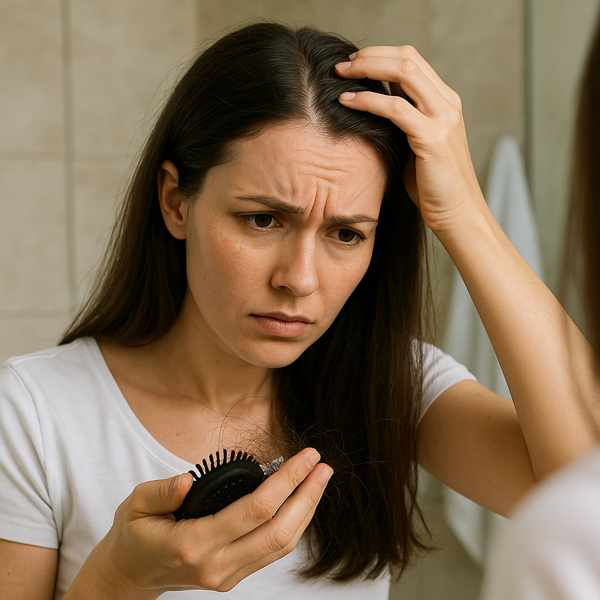
Losing weight is often a positive step toward better health, but it can sometimes come with unexpected side effects — like hair loss.
Understanding why this happens and how to protect your hair can help you reach your goals without compromising your confidence.
What Causes Hair Loss After Losing Weight?
Hair loss during weight loss is usually a result of physical stress or nutritional deficiencies.
Common causes include:
- Nutrient deficiencies
- Body enters stress mode
- Shifts in metabolism or thyroid function
- Rapid weight loss
Temporary Hair Loss Explained
Most hair loss related to weight loss is called telogen effluvium.
Key facts:
- There’s a delay between cause and effect
- No bald patches, just thinning
- It often resolves on its own
Nutrients Critical for Hair Health
If you're trying to lose weight, be sure not to miss these nutrients:
- Protein
- Iron
- Vital for cell renewal and keratin production
- Supports hair tissue repair and growth
- Linked to healthy follicles and hormonal balance
Skipping meals or using crash diets can easily lead to deficiencies that trigger hair loss.
Can You Prevent Hair Loss While Losing Weight?
You don’t have to choose between losing weight and keeping your hair.
Tips include:
- Lose weight gradually
- Eat a nutrient-rich diet
- Consider a multivitamin
- Manage stress and sleep
- Stay hydrated
What to Do If You’re Already Losing Hair
If you notice excessive shedding:
- Don’t panic
- Get bloodwork done
- Replenish what’s missing
- Avoid tight hairstyles and harsh products
- Hair regrowth takes a few months
Getting Expert Help for Hair Loss
A doctor or dermatologist can help identify underlying issues like:
- A common cause of both weight and hair changes
- Autoimmune conditions
- Severe nutritional deficiencies
The Truth About Weight Loss and Hair Loss
By understanding what’s happening inside your body, you can take steps to protect your health — and your hair.
Prioritize nourishment, patience, and consistency, more info and your body will thank you — from head to toe.